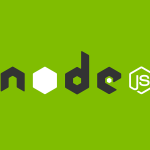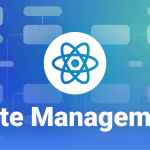Artificial Intelligence (AI) has become a fundamental part of modern software development, transforming how we build, test, and deploy digital solutions. From automated code generation to predictive analytics and smart decision-making systems, AI is reshaping the role of developers and organizations. However, with this power comes a growing need to address the ethical implications of AI technologies. As developers and tech innovators continue to push the boundaries, ethical responsibility must remain a guiding principle to ensure fairness, accountability, and transparency in software systems.
Table of Contents
Understanding the Role of AI in Software Development
AI-driven tools and frameworks have changed the development landscape. They assist in debugging, optimize performance, automate repetitive coding tasks, and even suggest solutions to complex problems. Tools like GitHub Copilot, ChatGPT-based code assistants, and AI testing frameworks are enabling developers to build smarter applications faster.
While these innovations have clear benefits, they also raise important questions. Who owns the AI-generated code? How do we ensure that AI systems do not unintentionally introduce bias, security flaws, or unethical decision-making? The answers lie in building an ethical foundation for AI-powered software development.
Data Ethics and Privacy Concerns of Software Development
AI systems learn from data, and the quality and integrity of that data directly impact their output. If the training data includes biased, incomplete, or unethically sourced information, the resulting AI system will reflect those flaws. Developers must take responsibility for understanding where the data comes from and whether it respects privacy and consent.
Regulations such as the General Data Protection Regulation (GDPR) and the California Consumer Privacy Act (CCPA) emphasize user consent and transparency. Ethical developers should adopt similar principles by anonymizing sensitive data, limiting unnecessary data collection, and providing clear communication about how user information is used. Data privacy is not just a legal requirement; it is a moral obligation.
Addressing Algorithmic Bias for Software Development
One of the most serious ethical challenges in AI development is algorithmic bias. Machine learning models often reflect societal biases found in their training datasets. This can lead to discriminatory outcomes, particularly in sensitive areas like recruitment, finance, law enforcement, and healthcare.
Developers need to actively test their AI systems for bias, diversify datasets, and incorporate fairness checks. Ethical frameworks like the Fairness, Accountability, and Transparency (FAT) model help guide this process. Additionally, involving multidisciplinary teams—including ethicists and social scientists can bring a broader perspective to identifying potential issues before deployment.
Transparency and Explainability
As AI becomes more complex, understanding how it makes decisions is increasingly difficult. The concept of “black box” AI, where the decision-making process is opaque, poses a significant ethical risk. When users or developers cannot explain why an AI system reached a certain conclusion, trust is lost.
Developers should aim for explainable AI (XAI), where algorithms are designed to provide clear insights into their reasoning process. Providing explanations for AI decisions improves accountability, helps identify errors, and ensures users feel confident using AI-powered systems. Transparency is essential for maintaining trust between technology and society.
Security and Responsibility for Software Development
AI systems, like any software, are vulnerable to misuse and attacks. Deepfake generation, automated hacking, and misinformation campaigns have shown how AI can be weaponized. Ethical AI development involves building safeguards to prevent such misuse.
Developers must ensure that security is embedded at every stage of the AI lifecycle. This includes secure data handling, robust access controls, and regular audits. Additionally, companies should define clear lines of accountability when AI systems malfunction or cause harm. Without responsible oversight, even the most advanced AI tools can create serious risks.
Intellectual Property and Ownership
As AI tools begin to write code, generate designs, or create content, the question of intellectual property becomes more complicated. Who owns the output produced by an AI model—the developer, the organization, or the AI provider? Ethical considerations must include respect for existing intellectual property laws and acknowledgment of human input in AI-generated work.
Open-source AI models and transparent licensing agreements can help avoid conflicts and ensure that AI innovation remains fair and accessible. Developers should always credit data sources, respect copyrights, and maintain openness about how AI-generated results are produced.
The Human Element in AI Development
AI should enhance human creativity, not replace it. While automation improves productivity, over-reliance on AI tools can erode human decision-making skills and critical thinking. Ethical developers must find the right balance between automation and human oversight.
It is essential to remember that AI lacks empathy and moral judgment. Human developers must remain the final decision-makers in systems that affect people’s lives. By designing AI systems that support human judgment rather than override it, developers can ensure that technology remains a tool for empowerment, not control.
Building an Ethical AI Culture
Ethical AI development is not a one-time effort but a continuous process that requires organizational commitment. Companies should establish clear ethical guidelines, conduct regular audits, and provide training for their development teams. Creating an internal ethics board or review committee can also help ensure that projects align with moral and societal values.
Collaboration between developers, policymakers, and researchers is key to maintaining ethical standards. Global initiatives like the AI Ethics Guidelines from the European Commission or the IEEE Global Initiative on Ethics of Autonomous and Intelligent Systems are excellent starting points for creating responsible frameworks.
Conclusion
Ethics in AI software development is not just about complianceit’s about creating technology that respects human dignity, fairness, and trust. Developers play a crucial role in shaping how AI impacts society, and with that power comes a responsibility to build transparent, fair, and accountable systems. Also Check Building Scalable Apps – Ultimate Free Guide – 2025







1 thought on “AI in Software Development – Comprehensive Guide 2025”